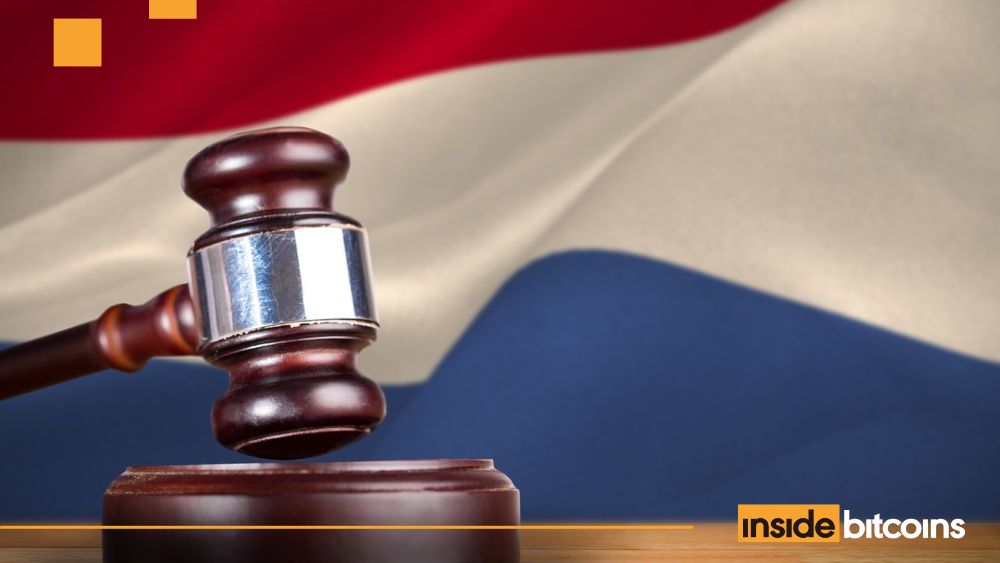Join Our Telegram channel to stay up to date on breaking news coverage
The Dutch gambling regulator, Kansspelautoriteit (KSA), has imposed a substantial €1.275 million fine on Winning Poker Network (WPN) for offering unlicensed online poker and casino games to Dutch players. This significant penalty, announced on January 14, 2025, represents the culmination of a multi-year enforcement effort against WPN’s operations in the Netherlands and underscores the regulator’s intensified crackdown on illegal gambling activities.
The fine marks one of the KSA’s largest enforcement actions in recent years and sends a clear message to offshore operators targeting Dutch players without proper authorization. According to the regulator, WPN—a Costa Rica-based operator—repeatedly violated Dutch gambling laws despite prior warnings and enforcement measures, demonstrating a pattern of non-compliance that ultimately led to the substantial financial penalty.
Key Takeaways
- Substantial Fine: The KSA imposed a €1.275 million penalty on Winning Poker Network for unlicensed operations targeting Dutch players.
- Multiple Violations: WPN operated several websites including AmericasCardRoom.eu, TruePoker.eu, BlackChipPoker.eu, and PokerKing.com that were accessible to Dutch players without required licensing.
- Progressive Enforcement: The fine follows a multi-year regulatory process that began with investigations in 2022, followed by cease-and-desist orders and escalating penalties.
- Aggravating Factors: The base fine of €600,000 was increased by €675,000 due to misleading practices, charging fees to inactive players, and persistent non-compliance despite prior warnings.
- Consumer Protection Focus: The KSA emphasized that the hefty fine reflects its commitment to protecting Dutch consumers from unregulated gambling offerings.
- Broader Context: This case is part of a larger regulatory campaign that has resulted in over €8.5 million in fines between 2023-2025 against unlicensed operators.
Detailed Violations and Regulatory Findings
The KSA’s investigation revealed multiple serious violations of Dutch gambling law by the Winning Poker Network. WPN’s network of poker sites allowed Dutch players to create accounts, deposit funds, and participate in online poker games and casino activities without adhering to the strict consumer protection measures required under Dutch regulation.
Specific Violations Identified
The regulator documented several specific illegal practices:
- Dutch-Targeted Operations
- WPN’s platforms allowed registration using Dutch addresses and identity documents
- Sites accepted iDEAL payments, a Dutch-specific payment method
- Cryptocurrency deposits were enabled, circumventing traditional financial monitoring
- Dutch-language customer support was available to players
- Prohibited Game Offerings
- In addition to poker, the platforms offered online slots and casino games, which remain prohibited in the Netherlands even for licensed operators
- No responsible gambling tools or self-exclusion options were provided
- No age verification processes met Dutch regulatory standards
- Misleading Business Practices
- WPN sites falsely claimed legitimacy by referencing foreign licenses that have no validity in the Netherlands
- Marketing materials failed to disclose the unlicensed status of the operations
- Inactive players were charged maintenance fees without clear prior disclosure
“These violations represent a significant threat to the integrity of the Dutch regulated gambling market and to consumer protection,” said Michel Groothuizen, Chairman of the KSA. “A penalty payment order quickly removes illegal offerings, but fines ensure consequences. We hit offenders where it hurts—their wallets.”
Regulatory Timeline: A History of Non-Compliance
The fine represents the culmination of a lengthy enforcement process that began nearly three years ago, demonstrating the KSA’s persistence in pursuing operators that attempt to evade Dutch gambling regulations.
2022-2023: Initial Investigations and Warnings
- September 2022: The KSA identified AmericasCardRoom.eu and TruePoker.eu as unlicensed platforms accessible to Dutch players. Initial investigations confirmed that both sites were actively serving Dutch customers without restriction.
- March 2023: After concluding its preliminary investigation, the KSA issued a formal cease-and-desist order to WPN. This order included a €25,000 weekly penalty (capped at €75,000) for continued non-compliance.
- April 2023: Following the cease-and-desist order, AmericasCardRoom.eu implemented geo-blocking to prevent Dutch access. However, TruePoker.eu remained operational and accessible to Dutch players, demonstrating only partial compliance with the regulatory directive.
2024-2025: Escalation and Final Penalty
- Throughout 2024: The KSA conducted additional monitoring that revealed continuing violations. Despite the initial geo-blocking of AmericasCardRoom.eu, the regulator discovered that WPN had redirected Dutch players to alternate platforms within its network, including BlackChipPoker.eu and PokerKing.com.
- December 2024: After compiling comprehensive evidence of ongoing violations, the KSA finalized the €1.275 million fine. The penalty calculation included a base fine of €600,000 for unlicensed operations, with an additional €675,000 added due to aggravating factors.
- January 14, 2025: The KSA publicly announced the penalty, emphasizing its commitment to consumer protection and market integrity. The announcement specifically highlighted WPN’s pattern of evasive actions and resistance to compliance efforts.
Penalty Structure: Base Fine and Aggravating Factors
The KSA’s fine calculation provides insight into how the Dutch regulator evaluates the severity of gambling violations. According to regulatory documents, the €1.275 million penalty breaks down as follows:
- Base Fine: €600,000 for the core violation of offering unlicensed gambling services to Dutch residents
- Additional Penalties for Aggravating Factors:
- €225,000 for misleading practices, including false claims of legitimacy through foreign licensing
- €225,000 for charging fees to inactive player accounts without proper disclosure
- €225,000 for persistent non-compliance despite prior warnings and partial blocking measures
“The significant increase beyond the base fine reflects the particularly concerning nature of WPN’s violations,” explained a KSA spokesperson. “Especially troubling was the attempt to circumvent enforcement by redirecting players to alternate sites within the same network after receiving formal warnings.”
Dutch Gambling Regulatory Context
The action against WPN exists within the broader context of the Netherlands’ evolving approach to gambling regulation, which has seen significant changes since the Remote Gambling Act came into effect in October 2021.
Legal Framework for Online Gambling in the Netherlands
Under current Dutch regulations:
- Licensed Operations: Online poker is permitted only through properly licensed operators that meet strict requirements for player protection, anti-money laundering measures, and responsible gambling tools. Licensed operators include major brands like PokerStars and 888poker.
- Casino Game Restrictions: Unlike many European jurisdictions, the Netherlands maintains prohibitions on online slots and casino games, making these offerings illegal even for licensed operators. This restriction has created opportunities for unlicensed sites to attract Dutch players seeking these game types.
- Strict Compliance Requirements: Licensed operators must implement comprehensive responsible gambling measures, including deposit limits, cooling-off periods, and participation in the national self-exclusion system (CRUKS).
- Technical Standards: Licensed platforms must adhere to strict technical requirements, including maintaining data servers within the EU and implementing sophisticated player verification systems.
Enforcement Trends
The fine against WPN aligns with the KSA’s increasingly aggressive enforcement stance. Between 2023 and early 2025, the regulator has levied over €8.5 million in fines against unlicensed operators, including:
- A €900,000 penalty against Vave for targeting Dutch players
- A €775,000 fine against an operator affiliated with GGPoker
- Multiple smaller penalties against various offshore platforms
“The Dutch regulatory approach has evolved from primarily issuing warnings to implementing substantial financial penalties,” noted gambling law expert Pieter van den Hoogenhoff. “This shift reflects the maturation of the licensed market and the KSA’s increasing confidence in asserting its authority against international operators.”
WPN’s Response and Market Implications
As of the announcement date, WPN had not issued any public comment regarding the fine or indicated plans to appeal the decision. The operator’s silence contrasts with its previous partial compliance actions, raising questions about its future approach to the Dutch market.
Potential Responses from WPN
Industry analysts suggest several possible scenarios for WPN’s response:
- Complete Market Exit: WPN could implement comprehensive geo-blocking across all its platforms, effectively abandoning the Dutch market.
- Legal Challenge: The operator might contest the fine through administrative appeals or legal action, though such challenges have rarely succeeded against KSA enforcement actions.
- Continued Operations: Despite the fine, WPN could attempt to maintain Dutch market access through new domains or technical workarounds, though this would likely trigger even more severe penalties.
- Licensing Application: Though considered unlikely given the history of non-compliance, WPN could theoretically pursue proper licensing in the Netherlands, though the current violations would significantly complicate any such application.
Broader Market Impact
The substantial fine sends clear signals to both licensed and unlicensed operators in the Dutch gambling market:
- Deterrent Effect: The size of the penalty is likely to discourage other offshore operators from targeting Dutch players, potentially reducing illegal gambling options available to Dutch consumers.
- Compliance Investment: Licensed operators may increase investments in geo-blocking and payment filtering technologies to ensure strict compliance with Dutch regulations.
- Market Consolidation: As enforcement pressure increases on unlicensed operators, the Dutch regulated market may see further consolidation among compliant companies.
“This enforcement action demonstrates that the KSA has both the determination and the technical capacity to identify and penalize even sophisticated offshore operators,” commented René Jansen, former KSA chairman and gambling industry consultant. “The message to unlicensed operators is unambiguous: targeting Dutch players without proper authorization carries substantial financial risk.”
Consumer Protection Emphasis
Throughout its enforcement announcement, the KSA consistently emphasized consumer protection as the primary motivation for the action against WPN. This focus reflects the regulator’s dual mandate of market oversight and public safety.
“Unlicensed operators like WPN offer none of the safeguards required of legal providers,” explained Groothuizen. “Players on these platforms have no protection against addiction risks, no guarantee of fair games, and limited recourse in case of disputes or misconduct.”
Specific consumer protection concerns highlighted by the KSA included:
- Addiction Prevention: Unlicensed sites lack mandatory tools like deposit limits, reality checks, and self-exclusion options.
- Fair Gaming: Without proper technical certification and monitoring, players have no assurance of game integrity or random number generator fairness.
- Data Protection: Player personal and financial information may not receive adequate protection on unlicensed platforms.
- Dispute Resolution: Dutch players on illegal sites have no access to the formal complaint procedures required of licensed operators.
These concerns are particularly relevant given the Netherlands’ strong emphasis on responsible gambling as a cornerstone of its regulatory framework. The country maintains one of Europe’s most comprehensive problem gambling prevention systems, including the mandatory CRUKS self-exclusion database that all licensed operators must implement.
International Regulatory Implications
The KSA’s action against WPN carries implications beyond the Netherlands, potentially influencing regulatory approaches across Europe and globally.
European Regulatory Coordination
The fine demonstrates increasing coordination among European gambling regulators, who are sharing information and enforcement strategies to combat unlicensed operators that target multiple jurisdictions:
- Information Sharing: The KSA likely utilized intelligence from other European regulators who have also targeted WPN’s operations.
- Harmonized Approaches: The Dutch enforcement action mirrors similar measures taken by regulators in countries like Germany, Sweden, and Belgium.
- Financial Pressure: By targeting operator revenues through substantial fines, European regulators are collectively increasing the financial risk for non-compliant platforms.
Global Enforcement Trends
The case also reflects broader global trends in gambling enforcement:
- Rising Penalties: Jurisdictions worldwide are increasing fine amounts to create meaningful deterrence against illegal gambling.
- Technical Sophistication: Regulators are developing more advanced monitoring capabilities to identify operators that attempt to evade geo-blocking or payment restrictions.
- Payment Focus: Enforcement increasingly targets payment processing as a vulnerability for illegal operators, making it harder to move funds across borders.
“The interconnected nature of online gambling requires coordinated regulatory responses,” observed Dr. Alan Littler, gambling regulation researcher at Tilburg University. “The KSA’s action against WPN exemplifies how modern regulators are developing more sophisticated, persistent approaches to enforcement across jurisdictions.”
Conclusion: A Watershed Moment in Dutch Enforcement
The €1.275 million fine against Winning Poker Network represents a significant milestone in the KSA’s regulatory enforcement evolution. By imposing one of its largest penalties to date after a multi-year investigation, the Dutch regulator has demonstrated both its commitment to market compliance and its willingness to pursue complex, cross-border enforcement actions.
For operators, the case establishes clear precedent regarding the financial risks of targeting Dutch players without proper authorization. The substantial fine, combined with the KSA’s detailed documentation of violations, creates a compelling case for compliance rather than evasion.
For Dutch players, the enforcement action reinforces the distinction between regulated poker platforms with consumer protections and unregulated sites that may put both their funds and personal data at risk. As the KSA continues its enforcement campaign, the availability of illegal gambling options is likely to decrease, potentially channeling more players toward the regulated market.
As Michel Groothuizen concluded in the KSA’s announcement: “Our primary mission is ensuring a safe gambling environment for Dutch consumers. This substantial fine demonstrates our unwavering commitment to that goal and our determination to take decisive action against those who undermine it.”
References
- iGaming Expert. (2025, January). “KSA Fines Winning Poker Network.”
- Yogonet. (2025, January 15). “Dutch regulator fines Winning Poker Network €1.34 million for unlicensed operations.”
- iGaming Business. (2023). “KSA issues cease-and-desist order to Winning Poker Network.”
- Poker.pro. (2025). “One of the Winning Poker Network skins gets fined for €1,275,000.”
Join Our Telegram channel to stay up to date on breaking news coverage


